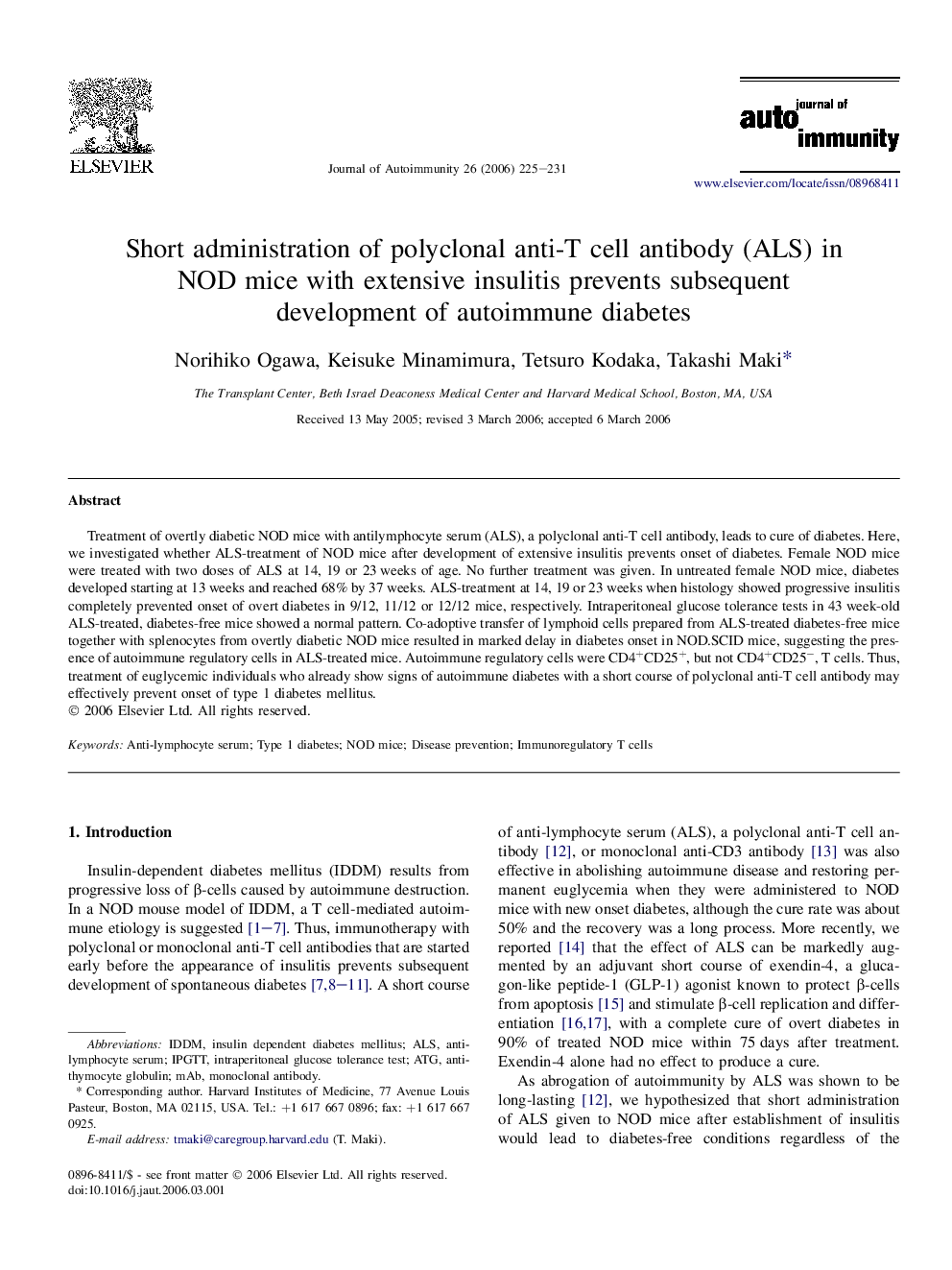| Article ID | Journal | Published Year | Pages | File Type |
|---|---|---|---|---|
| 3368562 | Journal of Autoimmunity | 2006 | 7 Pages |
Treatment of overtly diabetic NOD mice with antilymphocyte serum (ALS), a polyclonal anti-T cell antibody, leads to cure of diabetes. Here, we investigated whether ALS-treatment of NOD mice after development of extensive insulitis prevents onset of diabetes. Female NOD mice were treated with two doses of ALS at 14, 19 or 23 weeks of age. No further treatment was given. In untreated female NOD mice, diabetes developed starting at 13 weeks and reached 68% by 37 weeks. ALS-treatment at 14, 19 or 23 weeks when histology showed progressive insulitis completely prevented onset of overt diabetes in 9/12, 11/12 or 12/12 mice, respectively. Intraperitoneal glucose tolerance tests in 43 week-old ALS-treated, diabetes-free mice showed a normal pattern. Co-adoptive transfer of lymphoid cells prepared from ALS-treated diabetes-free mice together with splenocytes from overtly diabetic NOD mice resulted in marked delay in diabetes onset in NOD.SCID mice, suggesting the presence of autoimmune regulatory cells in ALS-treated mice. Autoimmune regulatory cells were CD4+CD25+, but not CD4+CD25−, T cells. Thus, treatment of euglycemic individuals who already show signs of autoimmune diabetes with a short course of polyclonal anti-T cell antibody may effectively prevent onset of type 1 diabetes mellitus.
